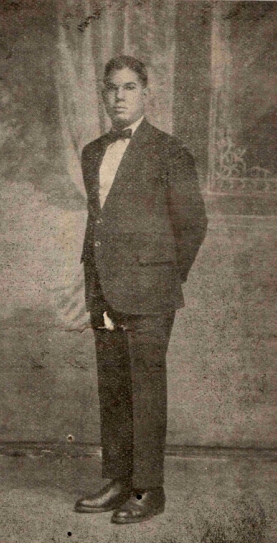Related Research Articles

The politics of Fiji take place within the framework of a parliamentary representative democratic republic. Fiji has a multiparty system with the Prime Minister of Fiji as head of government. The executive power is exercised by the government. Legislative power is vested in both the government and the Parliament of Fiji. The judiciary is mostly independent of the executive and the legislature.

Since becoming independent of the United Kingdom in 1970,Fiji has had four constitutions,and the voting system has changed accordingly.

Communal constituencies were the most durable feature of the Fijian electoral system. In communal constituencies,electors enrolled as ethnic Fijians,Indo-Fijians,Rotuman Islanders,or General electors vote for a candidate of their own respective ethnic groups,in constituencies that have been reserved by ethnicity. Other methods of choosing parliamentarians came and went,but this feature was a constant until their final abolition in the 2013 Constitution.

Pt. Vishnu Deo OBE was the first Fiji born and bred leader of the Indo-Fijians. From his initial election to the Legislative Council in 1929 to his retirement in 1959,he remained the most powerful Indo-Fijians political leader in Fiji. He was a staunch supporter of Arya Samaj in Fiji and also the editor of the first successful Hindi-language newspaper to be published in Fiji.
Parmanand Singh was one of the three Indo-Fijians elected to the Legislative Council of Fiji in October 1929 when Indo-Fijians were given the first opportunity to elect their own representatives. The other two were Vishnu Deo and James Ramchandar Rao. Singh was a landlord from Ba and undertook several business ventures which included publishing newspapers.
Kunwar Bachint Singh was an Indo-Fijian teacher and politician. He arrived in Fiji in 1927 as a teacher for the Arya Samaj but his association with Vishnu Deo led him to play an active role in aggressively promoting the Arya Samaj and finally into politics. He was elected into the Legislative Council as a protégéof Vishnu Deo but after the election took an independent stance opposed to the wishes of the majority of the Indo-Fijians. He supported nominated rather than elected representation,actively supported the war effort and even attempted to set up a farmers union opposed to a number of existing unions. The Government rewarded him for his loyalty by nominating him into the Legislative Council three times,appointing him as a Justice of the Peace and as the first Indo-Fijian member of the Executive Council.

Chandersen Chattur Singh was an Indo-Fijian politician. He caused a major sensation in the 1937 elections when he defeated A. D. Patel,a well known lawyer and political ally of Vishnu Deo.

General elections were held in Fiji between 17 April and 4 May 1963. For the first time,women and indigenous Fijians were given the right to vote alongside the male European and Indo-Fijian population.
The number of Fiji Indians that could be elected to the Legislative Council was fixed over the years as follows:
Mirza Salim Buksh was an Indo-Fijian community leader. One of the first Indo-Fijians to gain a formal education,he was chosen as one of the representatives of the Indian community on a number of occasions. He helped form and supported a number of social and religious organisations. He also served one term as a nominated member in the Legislative Council.
Indo-Fijians,also known as Indian Fijians,are Fijian citizens of Indian descent,and include people who trace their ancestry to various regions of the Indian subcontinent. Although Indo-Fijians constituted a majority of Fiji's population from 1956 through the late 1980s,discrimination and the resulting brain drain resulted in them numbering 313,798 (37.6%) out of a total of 827,900 people living in Fiji as of 2007.

General elections were held in Fiji in 1929. They were the first in which Indo-Fijians were allowed to vote.

General elections were held in Fiji on 31 August 1932,although only one of the nine elected seats was contested.

General elections were held in Fiji in July 1937,the first in which an equal number of Europeans and Indo-Fijians were elected.

General elections were held in Fiji in September 1947. Voting took place in the Northern and Western and Southern constituencies on 20 September,with voting in the Eastern constituency carried out between 15 and 22 September.

General elections were held in Fiji in August 1950. Voting took place in most locations on 26 August,and in the Lau and Lomaiviti Islands between 21 and 28 August.

General elections were held in Fiji on 29 August 1953.

General elections were held in Fiji in August 1956;voting took place in the Eastern constituencies between 11 and 18 August,and on 18 August in all other constituencies.

General elections were held in Fiji in September 1959,the last in which women and ethnic Fijians were still barred from voting. Voting took place in the Eastern constituencies between 5 and 12 September,and in the Northern and Western and Southern constituencies on 12 September.
References
- ↑ Ali, Ahmed (1980). Plantation to politics. Fiji: University of the South Pacific. p. 115.
- ↑ "Fiji Elections Archive: Elections for the Legislative Council, Eastern Division 1929 - 1959". Archived from the original on 2007-07-25.
- ↑ Sharma, Guru Dayal (1987). Memories of Fiji: 1887 - 1987. Guru Dayal Sharma, Suva, Fiji. p. 96.